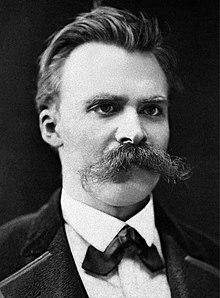In Twelfth Night Shakespeare dubbed music the food of love. Beethoven considered it a higher revelation than wisdom or philosophy. Nietzsche said without music, life would be a mistake. To him, and he wasn’t the sunniest of guys, music exalted the soul. Little wonder few topics get writers going–or even squabbling–like how music fits into wordsmithing time.
What style or go-to artist do you put on? Crank it up or keep it down? Radio serendipity or playlist certainty? Or do you embrace the zen of silence? Hardly idle questions. Among author folk, music can be as essential as pen and paper.
A confession: I can’t carry a tune. I can barely keep rhythm or decipher sheet music. And yet music is nearer and dearer to me than reading or writing. Words may thrill me or move me, but music gets inside me. I remember in vivid detail hearing R.E.M.’s “Losing My Religion” for the first time, me cruising in a cab down Michigan Avenue, my first solo business trip. The big brains of history weren’t lying: music accesses parts of us too subconscious for language. And stays there as memory and inspiration.
Isn’t this the sort of depth we hope to infuse on the page? That jolt of human connection is true whether writing high literary or pulp fiction. Music is maybe, just maybe a well tap into a more powerful storyteller self. Like Hans Christian Andersen said, where words fail, music speaks.
Having soapboxed, another confession: I don’t listen to music when writing. I did, early on. Rock, folk, alternative, whatever started me into a flow. Music seemed to help–until I realized it didn’t. Mainly it helped me write meh stuff. Not because I was a terrible writer, but because I hadn’t yet learned where music fit my writing process.
My stories work off voice and style. Landing that all-important tone forces me to seek out the point-of-view’s wavelength, get our back-and-forth cooking in my head. I can’t do that well when Joe Cocker is also in there belting out “She Came in Through the Bathroom Window.” At last year’s Southern Festival of Books, Ron Rash and Jill McCorkle shared that they were in the silence camp. For other writers, a creative moment is when they need their Go-To most. Stephen King, as someone who’s done okay for himself in publishing, famously rocks out when writing.
I’ve named my silence dynamic the One Distraction Rule. That is, I can hold the fiction zone together through a single pressing intrusion. Time pressure or a garbage truck slamming around a dumpster or a cat pawing the keyboard. A second invader, such as competing vocals, and my train of thought collapses. Poof. Goodbye, creative juice. What I’m saying, I can’t afford mad vocals starting me down a distraction.
Sorry, Joe. You don’t have to go home, but you can’t play here.
Instead, music has moved to my pre-writing stage. Before a session, I listen to stuff that clears my head. With luck, it nudges me toward whatever mood I want on the page. For humor, I’ll put on the Great American Songbook, say Cole Porter’s clever rhymes or Johnnie Mercer’s playfulness. My story in MWA’s Ice Cold anthology features a young Hungarian who seriously digs the Stones’ album Beggar’s Banquet. Honing her character meant listening to those tracks again and again.
Once adopted, a music pattern gets ingrained but also transforms into situational variants. Sometimes classical music provides me the perfect gorgeous white noise. For casual essays, writing in my own voice frees up a potential distraction. Good music can relax and inspire me. Right now Emmylou Harris is warbling out my computer speakers. When working in a library or anywhere public, music on big, old noise-cancelling headphones is a must, the author’s equivalent of the airplane introvert (of which I am also one).
My point isn’t to advocate a listening pattern. It’s that patterns are best process. A strategy. Good writing is intentional writing, and music can make my writing better. Or worse, if I’m not intentional. If anyone out there hasn’t struggled with music as a writing tool, Nietzsche might worry you’re making a mistake.
